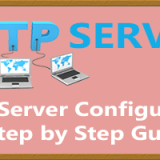Linux Server Operating Systems Most Widely Used Run Business Apps
Most basic thing is to know Why we call Linux Operating Systems in two different things one Desktop Operating systems and Server Operating Systems. Linux Server (s) are used to produce high computing/performance power, because host hardware is more powerful (High Configuration) then Desktops.
What is Linux Server .?
Basically server is a high configuration computer which provide services to clients over network. Example: Web Server. Host Web Services in Linux Server and use it from many clients.
Linux Server Operating Systems
First of all how an Server and Desktop operating systems are segregated based on what parameters. There are few parameter which any business (Industry/Company) Looks for, based on qualifying those features/parameter we consider OS is Server Operating system.
In Linux very few are designed for Linux Server Operating Systems
- Cost: Any Business/Industry first think about investment cost. Most of the Linux Server (s) are open-source, so that buying/adopting cost will reduce comparatively Windows OS. Because you can freely download and install Linux Server Operating systems but only you need to buy support (For more details Read GNU terms). Of course not free if you want to re-distribute.
- Scalability: Start as a small level and expand to any level. While starting business you don’t need to buy huge configuration servers, later when business expands along with the business your applications/servers need to expand. Linux Server has super scalable capacity.
- Stability: Another expectation is applications/servers should always stable. Once Linux server is moved to production it does not required to shutdown/reboot until an unless there is an need (Power Outage).
- Security: Now a Days most required is security. Linux Servers are by default secure if you install with harden (Only required things in it). SELinux, Firewalld and File & Directory level permissions are controlled by super administrator (root).
- Support: If any problem with designed Operating System(s) support team should fix errors proactively.
- Multitasking / Multi User: Basically Server Operating systems are designed to support Multiple task execution / Multi User support at the same time. Task execution can’t be wait for current task, all task will be executed as soon as they get the resource from resource pool (Depends on Hardware Configuration).
- Networking: Of Course it’s mandatory to have as many as integration support with multiple applications (As Industry grows). It should support all most all TCP/IP protocols and UDP protocols to communicate with multiple devices around the internet cloud.
Here are Few Linux Server OS’s
Red Hat Enterprise Linux
- Protect your data with military grade security
- Maximum Up time
- Multi container-based applications across enterprise
- Deliver High Performance, toughest workloads immediately
- Works with Heterogeneous platforms
Ubuntu Server
It is always at the top of most Linux-related lists. Ubuntu is Debian-based and is undoubtedly the leading standard in the industry. Ease of installation quality commercial support and excellent hardware discovery means Ubuntu’s standards is hard to match.
- Instead of Using Swap Partition it uses Swap File
- New Release Ubuntu 17.04 (Zesty Zapus)
- Kernel Version 4.10
- Updated Versions of QEMU, Libvirt and DPDK
- Driverless printing enabled
Centos
This is popular operating system for web hosting companies around the globe. Centos is clone of Red Hat Enterprise Linux with extended repository support. CentOS Linux is no-cost and free to redistribute.
Fedora
Fedora Server Edition is an ecosystem ideal for creating and operating validated service roles addressing most computing needs.
Slackware
Slackware is one of the earliest available Linux server distributions. It was released first in 1993 and since then, it has grown an extensive fan base. Slackware is not associated with commercial distributions but it maintains relationships with many companies that offer fee-based support.
CoreOS
We think open source works best when it is treated like Linux or Apache httpd, basic infrastructure that we all share with very little direct commercial motives.
We want our open source components, things like etcd, rkt, flannel, and Container Linux, to be freely used, even if by a competitor. To that end, we want to make sure CoreOS serves a single purpose for our users: the place for open source tools that are the fundamental building blocks of modern distributed systems.
Oracle Enterprise Linux
This will come as a surprise but Oracle does indeed run an in house Linux distribution. Formerly known as Oracle Enterprise Linux, this is Red Hard Enterprise Linux made stronger by some nifty additions from Oracle. Oracle’s Linux competes directly with Red Hat’s Linux server distributions and it has been able to keep doing so effectively. Free to Download and Easy to Use.
ClearOS
- Ease of Use. Installation and Setup is made easy.
- No Additional Cost. ClearOS is Pre-loaded.
- Aimed for Small Business Industries
Arch Server Linux
Arch Linux is a simple and lightweight Linux distribution designed with more competent Linux users in mind. It may not offer the same level of support and ease of use as can be found in other Linux sever operating systems on this list, but it has effortlessly functioned as a viable server for many more experienced administrators.
Suse Linux Enterprise Server
SUSE Linux Enterprise Server is a world-class, secure open source server operating system, built to power physical, virtual and cloud-based mission-critical workloads. SUSE Linux Enterprise Server (SLES) is owned by Micro Focus but operated independently. It is a good option for businesses without the time and patience for lengthy troubleshooting calls. SLES is another distribution that focuses on stability and support as against leading-edge technologies and features.
- Transform Software-defined Networking & Network Function Virtualization
- Meet strict security requirements of the Federal Government (FISMA)
- Adapt to new technologies—ARM AArch64, Raspberry Pi & Omni-Path
- Easy access to the latest packages/technologies using SUSE Package Hub integration with SUSE Customer Center (SCC)
Read More
How To Configure Linux LVM with Multipath Enabled
Introduction to Linux Operating System
Thanks for your wonderful Support and Encouragement
- Get Email | Download E-Books
- Facebook Page
- Youtube Channel
- Exclusive Telegram Group
- Discuss On WhatsApp Group






